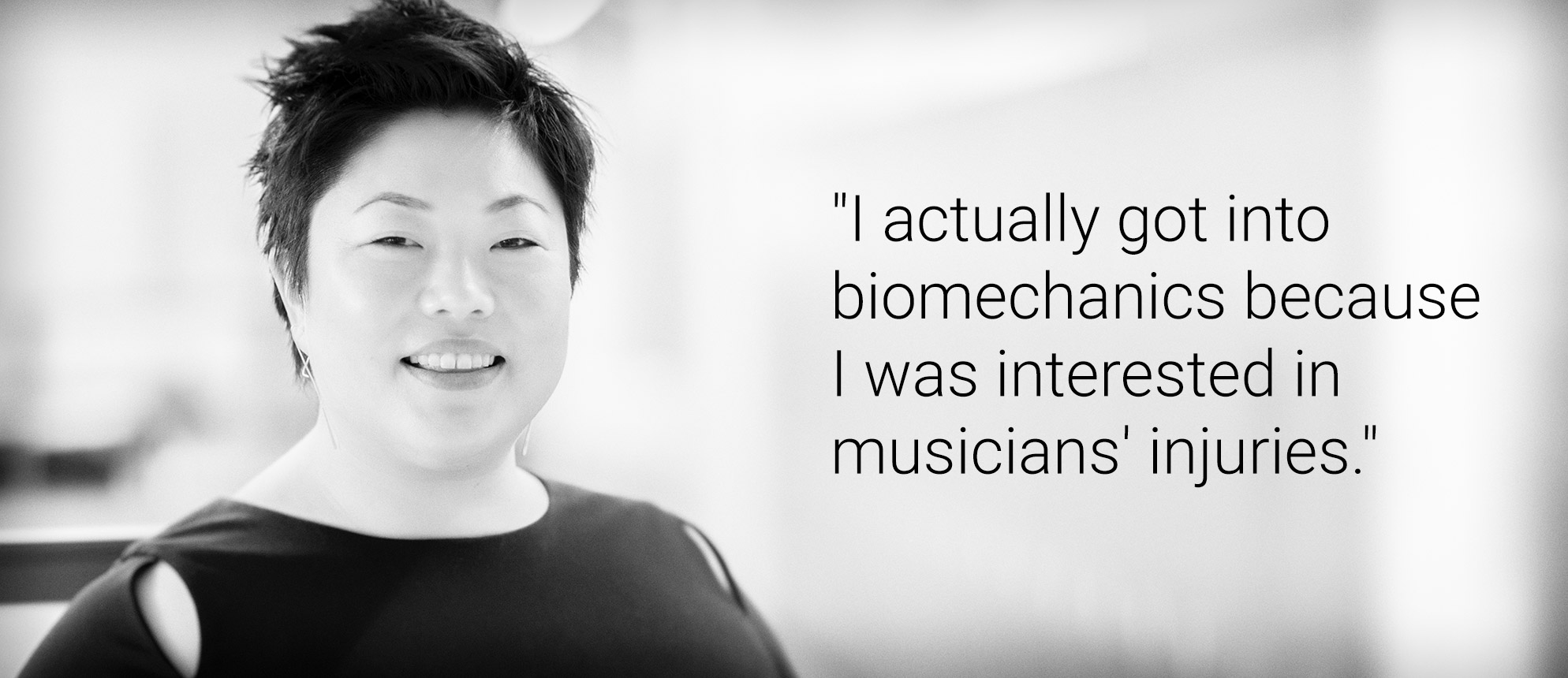How a career in music led to a PhD in biomechanics

How many people can say they have a Master’s degree in Music Performance, a PhD in Biomechanics, and once held an Ontario weightlifting record? Meet Dr. Leila Kelleher, a University of Guelph-Humber Kinesiology instructor whose path to UofGH was anything but typical.
Dr. Kelleher started out as a classically trained musician, who followed her talent for the viola to an undergraduate degree from the University of Adelaide in Australia and a master’s from the prestigious Eastman School of Music in Rochester, N.Y. For many years afterward, she was a professional musician playing in an orchestra in London, Ont.
When she became interested in a career change, Dr. Kelleher was inspired by her musical background.
“I actually got into biomechanics because I was interested in musicians’ injuries,” Dr. Kelleher said. “They’re a really, really big problem. Most instruments are not healthy in terms of the way we hold them and most of the time we can’t modify them to be more ergonomic. So close to 90 per cent of professional classical musicians will become injured in their work life.”
As Dr. Kelleher delved more deeply into her PhD studies at the University of Western Ontario, her focus expanded.
Her thesis looked at the Functional Movement Screen (FMS), a popular fitness test that is intended to uncover muscle issues or other injury risks by looking at our ability to physically perform everyday tasks.
Dr. Kelleher wanted to evaluate the validity of the FMS – or, in other words, she wanted to test a test. She ran roughly 150 people of different genders and ages through the test and tracked all sorts of statistics in doing so.
Ultimately, she found the FMS test isn’t a valid way to measure a person’s movement competency. Given that this test is a popular one for aspiring NHL and NFL draft picks, among other applications, Dr. Kelleher’s finding was significant.
“We found that the overall (FMS) score probably isn’t a very good indicator,” she said. “It’s too variable.”
Dr. Kelleher is still interested in occupational injuries. She’s in the early stages of new research looking at injuries to massage therapists.
She’s interested in looking at why massage therapists seem so vulnerable to occupational injury. Do they need more education on how to work in an ergonomic way? Or do they simply ignore some of those guidelines during a hectic work day?
She’s also just returned from a service learning trip to Nunavut with Humber College students and plans to continue to pursue research there.
Dr. Kelleher’s expertise on movement has been useful in other ways. She started weightlifting three years ago with the Canadian Masters Weightlifting Federation. For a time, she even held an Ontario record in the snatch category. She’s retired from competition now, but recently attained her national certification as a weightlifting judge and hopes to judge the Canadian national final in Toronto next year.
“It’s really great to be in the judging chair,” she said. “A lot of the Functional Movement Screen is judging movement competency. It’s the same in weightlifting; there’s all these rules they have to follow. You have to decide in a split second, was it correctly executed or wasn’t it?”
For someone who has spent her career combining applied and theoretical knowledge in interesting ways, Dr. Kelleher has found the University of Guelph-Humber to be a great fit.
“The Guelph-Humber environment is really interesting. It’s a great balance between hands-on learning and theoretical learning, and that appeals to me because of my music background. I’m not the kind of person who wants to sit in a room and calculate things. That’s not my style. So the way the program’s structured at Guelph-Humber resonates with me.”
Learn more about Kinesiology at the University of Guelph-Humber.


